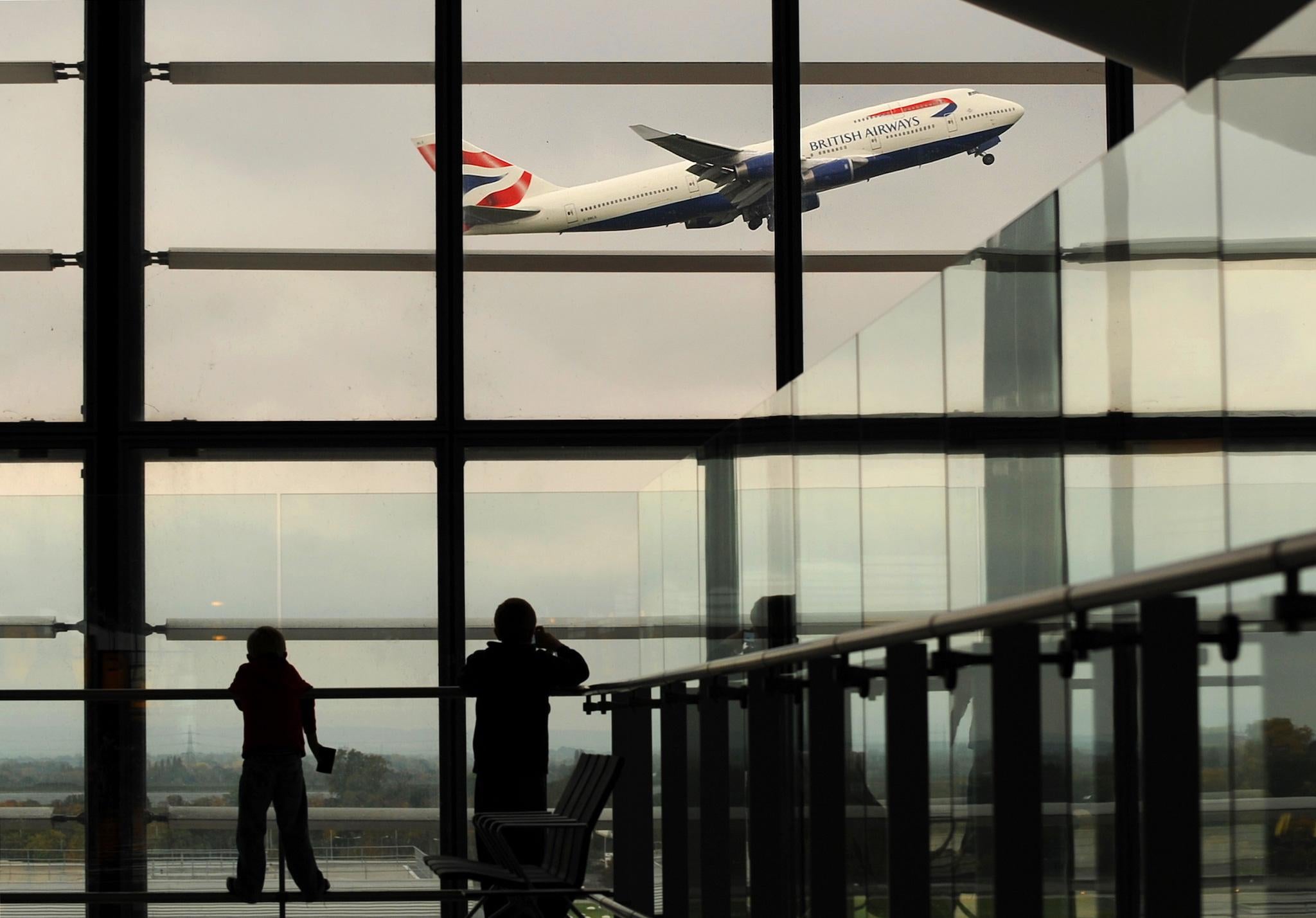Deliberate overbooking causes 50,000 British airline passengers to be denied boarding every year
Practice under scrutiny after video of distressed man being dragged off United Airlines flight goes viral

Your support helps us to tell the story
From reproductive rights to climate change to Big Tech, The Independent is on the ground when the story is developing. Whether it's investigating the financials of Elon Musk's pro-Trump PAC or producing our latest documentary, 'The A Word', which shines a light on the American women fighting for reproductive rights, we know how important it is to parse out the facts from the messaging.
At such a critical moment in US history, we need reporters on the ground. Your donation allows us to keep sending journalists to speak to both sides of the story.
The Independent is trusted by Americans across the entire political spectrum. And unlike many other quality news outlets, we choose not to lock Americans out of our reporting and analysis with paywalls. We believe quality journalism should be available to everyone, paid for by those who can afford it.
Your support makes all the difference.Around 50,000 airline passengers a year are bumped off British flights, many of which have been deliberately overbooked, according to the aviation watchdog.
Paying customers can be forced to abandon a pre-booked journey under the practice, which aims to slash costs and promote greener travel.
Global outrage was provoked when footage surfaced of a doctor being violently manhandled off an overbooked US flight, leaving him bloodied.
Data from the Civil Aviation Authority (CAA) showed an average of 0.02% of passengers travelling to or from the UK experienced so-called denied boarding in 2015, equivalent to more than 50,000 people.
The CAA said in a report: “The main reasons airlines denied boarding were due to overbooking or having to bring in a smaller aircraft than planned to operate a flight.”
Many airlines operating at British airports overbook to mitigate the losses made when passengers cancel or fail to show up for their seats.
Overbooking is also said to spell cheaper fares for travellers and less fuel waste from planes, according to an expert.
When too many passengers show up, airline staff will ask, conventionally before boarding, if there are any willing to surrender their seat in exchange for a so-called “bump” offer.
Such incentives, which are often increased until there are enough volunteers, can include cash, a night in a hotel or an upgraded replacement flight, travel writer Simon Calder said.
He told the Press Association: “Overbooking is a benign practice in general. When it is done properly, it is a win-win for everybody involved.
“The airlines make more money so they say they can keep fares down, the environment is better off because planes are flying fuller, passengers that desperately need to travel can book a seat on a flight even though it's technically sold out and people like me who are happy to be flexible and to be paid money not to get on a flight are happy because we make more money on the deal than we paid on the flight in the first place.”
If volunteers do not materialise, however, customers face being randomly selected to leave the flight.
The male doctor filmed being dragged from the United Airlines plane from Chicago to Louisville had reportedly refused to leave after saying he needed to return to treat patients.
Mr Calder said the physical response the man experienced was rare.
He said: “Generally, the passenger can say I'm going to a wedding, I'm going to a funeral, I'm a doctor or a surgeon I've got to operate people in the morning and then a less time-pressed person will be forced off instead.
“I hope this simply trains the airlines to be much more focused on how to do it properly, rather than dragging people kicking and screaming from planes, which is never a good look.”
Under EU regulations, airlines are required to pay immediate compensation if a person is forced off a flight.
According to consumer group Which?, although passengers are not guaranteed bump offers, they are entitled to the same assistance and compensation as if their flight was cancelled.
For long-haul flights, this is set at £512 (600 Euros).
Press Association
Join our commenting forum
Join thought-provoking conversations, follow other Independent readers and see their replies
Comments